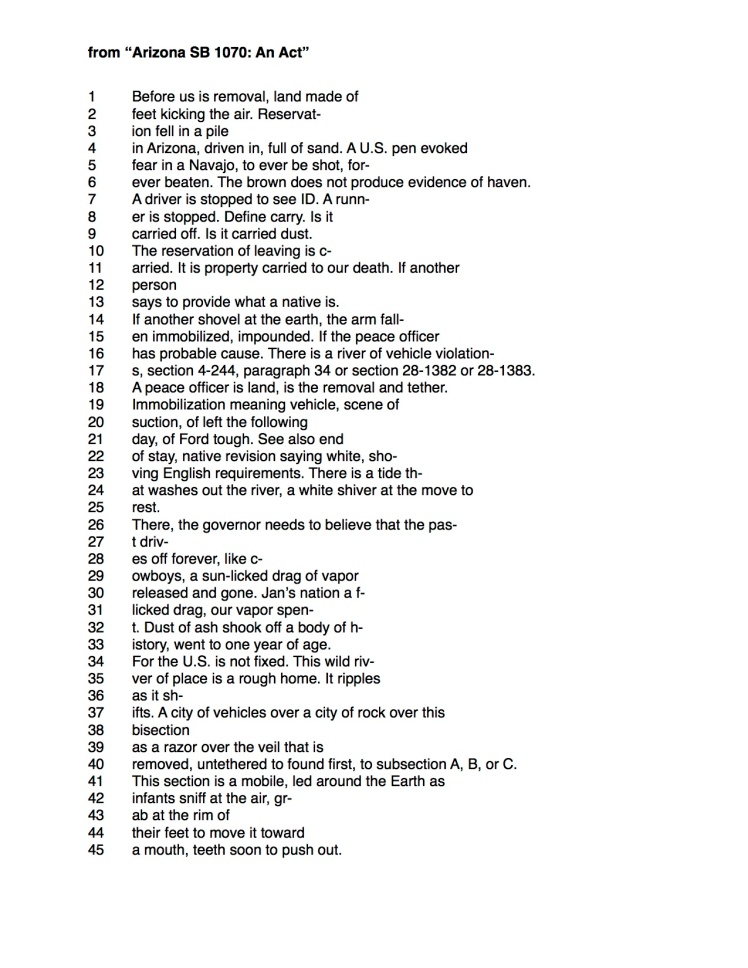In my poetry project, “Arizona SB 1070: An Act,” I have written a homophonic translation of the bill in which I attempt to interrogate the controversy surrounding this legislation. I have tried to write against the bill, itself, to transform its message from one of divisiveness to one that embraces a move toward compassion for others. My specific method of homophonic translation is what I call the “re-sounding” method, and it is based on re-sounding a written text based on each individual letter’s potential to make sound. For example, “cat” can be translated more than 65 different ways, one of them being “ash”, with the ‘c’ silent as in “indict”, and the ‘t’ as an ‘sh’ sound as in “ratio”. I want not only to call attention to the racial oppression operating within this bill, but also to point toward a need for advocacy as we begin to repair this severely tattered climate of trust within the state of Arizona, as well as within the larger population across the United States, because a damaged climate of trust is harmful to us all; it is something to which we all become vulnerable. More than anything, this project is meant to investigate this fear of others, so that this fear might be recognized, and we might begin to move away from oppression and toward the repairing of wounds that such legislation has opened, and reopened.
-Ryan Clark
Ryan Clark is a poet who, though originally from Texas, is currently writing his dissertation at Illinois State University. He is largely concerned with homophonic translation, the reparative potential of appropriative writing, and how poetry responds to violence and subjugation, symbolic and otherwise. His poetry has appeared in Fact-Simile, Monkey Puzzle, Seven Corners, and Tenderloin, and he also has an essay on teaching homophonic translation forthcoming from Something on Paper. In addition to SRPR, he has also served on the editorial boards of the literary journals Bombay Gin and Hyperbole.


